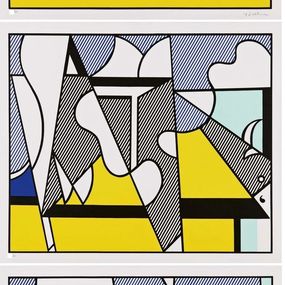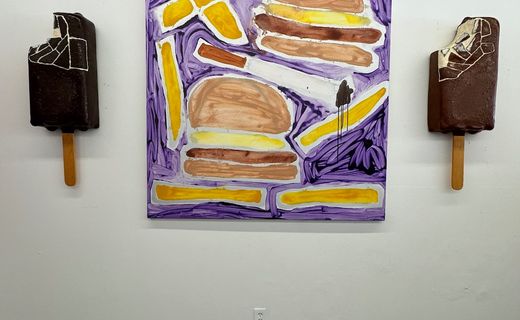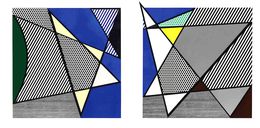

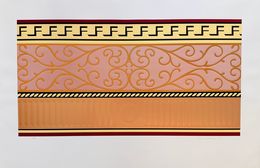
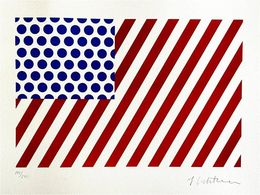

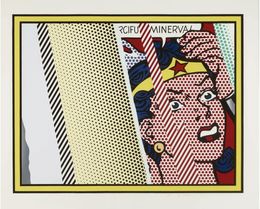
Reflections on Minerva
Roy Lichtenstein
Print - 106.7 x 131.4 x 2 cm Print - 42 x 51.7 x 0.8 inch
$165,000

Cow Triptych (Cow Going Abstract)
Roy Lichtenstein
Print - 66 x 77 x 0.1 cm Print - 26 x 30.3 x 0 inch
Sold
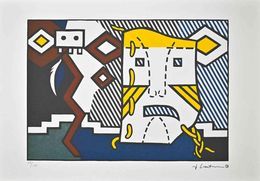
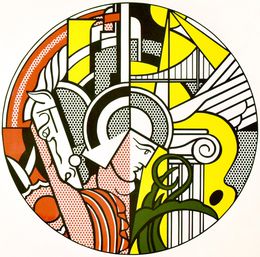
The Solomon R. Guggenheim Museum
Roy Lichtenstein
Print - 74 x 74 x 0.1 cm Print - 29.1 x 29.1 x 0 inch
Sold
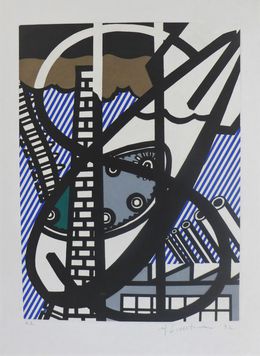
La nouvelle chute de l'Amérique : Une Fenêtre ouverte sur Chicago
Roy Lichtenstein
Print - 50.7 x 37.8 cm Print - 20 x 14.9 inch
Sold

Pop art looks out into the world. It doesn’t look like a painting of something, it looks like the thing itself.
Biography
We know him for his depiction of crying women, specially blondes, he is nonetheless one of the most popular artists of the twentieth century. Roy Fox Lichtenstein was born in 1923 in Manhattan, New York and died in 1997. He was one of the biggest contributors of American Pop art, besides great masters of the genre such as Andy Warhol.
At first, Roy Lichtenstein, drew during jazz concerts, which he was passionate about and portrayed the musicians. In 1939, he took summer classes at the art school "Students League of New York" and then he enrolled at the Ohio State University where he took some classes of Fine Arts. Later on, he became himself a professor in the same field, at Rutgers University, where he met Allan Kaprow who greatly influenced his artwork.
In the beginning of his career, from 1951 to 1956, Lichtenstein alternated between Cubism and Expressionism, he then turned towards a more abstract form of Expressionism by the end of the 50s.
To create his pieces, Roy Lichtenstein deliberately used the codes of popular culture. Comics and advertisements mixed in order to create a fantasy pop. He then started using the images of comic strips and commercial advertisements to expose American consumerism and turned them into derision.The more his pieces resembled the original, the more the critics were significant.
In his pieces, the lines are thick, the colors bold and saturated. Roy Lichtenstein uses a specific technique, a mask, that allows him to give his images the aspect of a pattern of dots, evoking the screen printing process used in the advertising industry.
His works can be found in collections in numerous museums all around the world.
Nationality
Categories
Artistic movements
Themes
